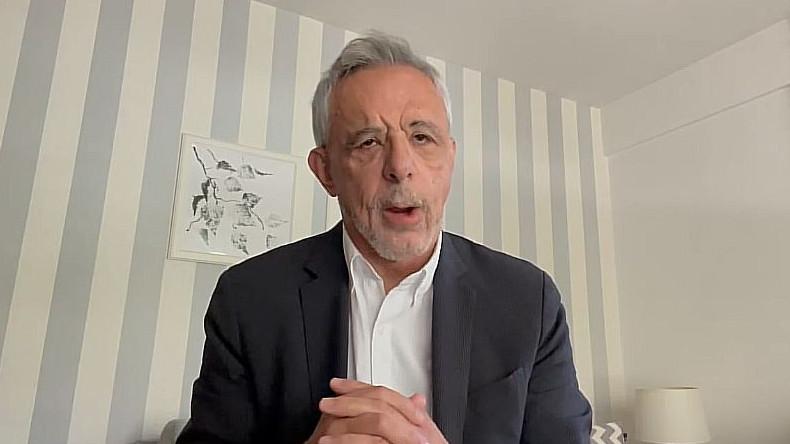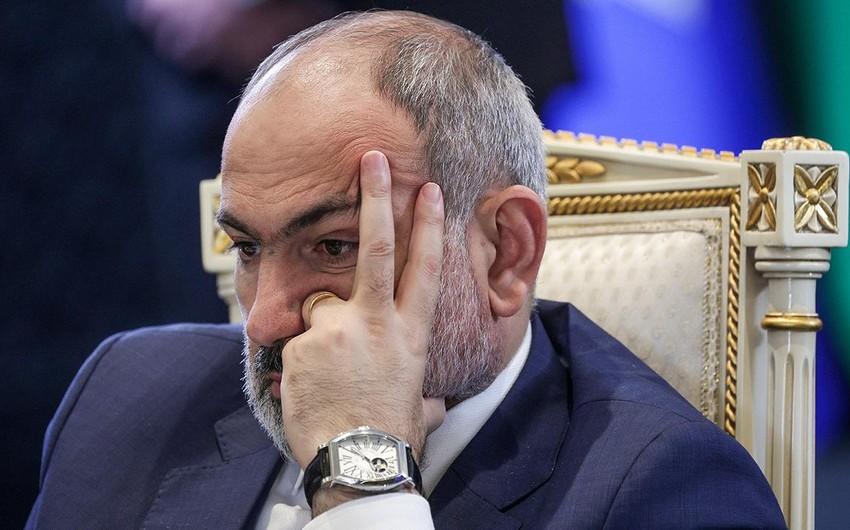Unfolding processes in Armenia run against optimism on peace treaty with Azerbaijan Yerevan running into trouble again
Unfortunately, the ongoing events in Armenia are contrary to the recent optimism about the speedy conclusion of a peace treaty with Azerbaijan.
On the one hand, we heard Armenian Prime Minister Nikol Pashinyan’s statement such as “The Republic of Armenia needs a new constitution, rather than constitutional changes”.
It is possible to assume that besides other changes, the prime minister also had in mind a change in the preamble of the Armenian constitution, which currently contains territorial claims to Azerbaijan.
Is this really so? After all, most of Pashinyan’s statements, as we have seen, are worthless.
Thus, “hesitant” so-called “President of Artsakh”, Samvel Shahramanyan, who is well known to us, got tired of hesitating and appointed the so-called “former minister of urban development” Aram Sargsyan “state minister of Artsakh”, Armenia’s Zhoghovurd newspaper reports, citing its sources.
According to the newspaper, this “position” was held by cousin of “ex-president” Arayik Harutyunyan - Artur Harutyunyan. Harutyunyan wrote a letter of resignation for personal reasons. He was appointed to this “position” in September 2023.
So, we see such a situation where the so-called “Artsakh government in exile” actually operates on the Armenian territory, which is a clear example of the duplicity of the Armenian leadership and the preservation of territorial claims against Azerbaijan in its political programme.
There is another similar event. Armenian Former Foreign Minister Vartan Oskanian agreed to head the “commission for the collective repatriation of the Artsakh people”. The shabby knight of Armenian diplomacy, after numerous appeals to get a job in the Foreign Ministry, finally got a job.
“I can say that the main task of the commission will be to protect, repatriate the “Artsakh people” and ensure the right to live safely, reliably and with dignity in their homeland with international guarantees,” happy Oskanian said. He made many similar statements.

The policy of preserving Yerevan’s territorial claims to Azerbaijan is also confirmed both in regulatory legal acts and in Armenia’s international legal activity. Firstly, as it was mentioned and as everyone already knows, the Constitution of Armenia in its preamble refers to the Declaration of Independence.
In turn, the Declaration of Independence of Armenia dated August 23, 1990 contains a reference to the illegal decision “On the reunification of the Armenian Soviet Socialist Republic and Nagorno-Karabakh”. That is, the fundamental law of Armenia not only approves, but also blesses the Armenian people for territorial claims against Azerbaijan.
Moreover, in its decision dated July 8, 1992, the Armenian Parliament points out that any international or internal document in which the “Nagorno-Karabakh Republic” is indicated as part of Azerbaijan is unacceptable to Armenia. This decision remains in force up till now.
Another tendency that persistently demonstrates Yerevan’s policy towards non-recognition of Azerbaijan’s territorial integrity is also causing concern.
During the period of decolonisation, first in South America in the 19th century, and then in Asia and Africa in the 20th century, the principle of Uti possidetis juris (as you possess under law) was firmly established in international legal practice.
According to this principle, new countries that have gained independence have the same territory and the same borders that they had before, being colonies or dependent territories, including administrative units within other countries. The same principle was actually recognised between the republics of the former Soviet Union and enshrined in the Almaty Declaration of 1991.
Although Armenia claims that “both sides have unequivocally agreed to the principle of uti possidetis juris, by signing the Almaty Declaration and Protocols and becoming parties to the Agreement establishing the Commonwealth of Independent States”, most of Yerevan’s actions, including official and legal correspondence, not only demonstrate disrespect for this principle in relation to the territorial integrity of Azerbaijan, but directly challenge it.
A brilliant example is the application filed by Armenia against Azerbaijan in the European Court of Human Rights (Application No. 42521/20). The excerpts from the relevant paragraphs of the statement are as follows:
Paragraph 251 – “both of these documents [the Almaty Declaration and the Agreement on the Creation of the CIS] refer to the principles of territorial integrity and inviolability of borders and do not include uti possidetis or the transformation of Soviet administrative borders into the borders of newly formed countries”
Paragraph 225 - “Armenia has never recognised the applicability of this principle for determining its borders with neighbouring countries that were formerly part of the Soviet Union”
Paragraph 223 - The Republic of Armenia states that nothing enshrines the conclusion that uti possidetis juris must be respected by two countries as a matter of general international law outside the context of decolonisation.
Paragraph 256 - The Republic of Armenia has never recognised the applicability of uti possidetis juris principle for determining the right of ownership in relations with the Republic of Azerbaijan. The inclusion of the territory of Artsakh in the administrative boundaries of the Azerbaijan Soviet Socialist Republic is not a legal argument in favour of Azerbaijan’s property rights in Artsakh.

There are numerous similar excerpts. We do not mention everything not to bore readers with details. Armenia continues distributing documents on behalf of the so-called “NKR” in such international organisations as the OSCE, the UN and others.
Moreover, in its official correspondence, Yerevan refers to the Azerbaijani territories as “Azerbaijan-controlled territories of Nagorno-Karabakh”, “territories under Azerbaijani control”, etc., thereby calling into question the sovereignty and territorial integrity of Azerbaijan.
It is clear that such actions are supported and even directed from at least one Western capital. Yerevan’s strategy of playing for time, involving the West, and especially France, in the region, and using it to push through a diplomatic discourse aimed at restoring the “Karabakh problem”, as well as preparing for military revenge through rearmament, is becoming clear.
Yerevan naively believes that by machinations with peace-loving statements it will be able to distract Baku from its true policy. However, Armenia’s all destructive actions were included in the scenarios for the development of events long ago and all of them have their own, often asymmetrical response, sometimes in the form of the Iron Fist.








